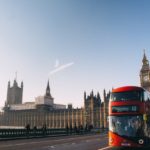“Only 26 percent of respondents agreed that the government should “strictly limit” the use of facial recognition, with about 45 percent disagreeing. “

With government authorities, tech company leaders, and voices from the media and activist groups having entered into a particularly heated phase of the debate over the public use of facial recognition over the past several months, new survey research from the Center for Data Innovation is offering a bit of insight into what the broader public thinks. And the results point to the limits of what the public is willing to tolerate with respect to regulation.
Only 26 percent of respondents agreed that the government should “strictly limit” the use of facial recognition, with about 45 percent disagreeing. And those feelings were accentuated when the survey went into public security tradeoffs: If strict regulations mean that airports can’t use facial recognition in security screening, only 20 percent agree, compared to 54 percent disagreeing; and if strict regulation means a general drop in public safety, the percentage who want regulation drops to just over 18 percent, with almost 55 percent opposed.
Delving into questions about police use of facial recognition technology in particular, the survey found a range of support depending on how accurate the technology is. If it’s right 80 percent of the time, for example, only 39 percent of respondents were okay with using facial recognition to track criminal suspects; but if the technology works 100 percent of the time, the percentage of supports jumped to 59 percent.
The research comes after multiple leaders from the tech world, including Microsoft’s President, have called for government regulations on how facial recognition can be used – with those calls themselves arriving in the wake of controversy surrounding Amazon’s sale of facial recognition to police authorities. It’s worth noting, however, that few of the calls for regulation have asked for particularly strict legislation, while the Center for Data Innovation’s polling was concerned solely with ideas about the government ‘strictly limiting’ how this technology can be used. More nuanced questions will likely yield more nuanced attitudes about government regulation, but the research at least offers some indication of a baseline interest in the public use of facial recognition among Americans.
Source: Center for Data Innovation








Follow Us